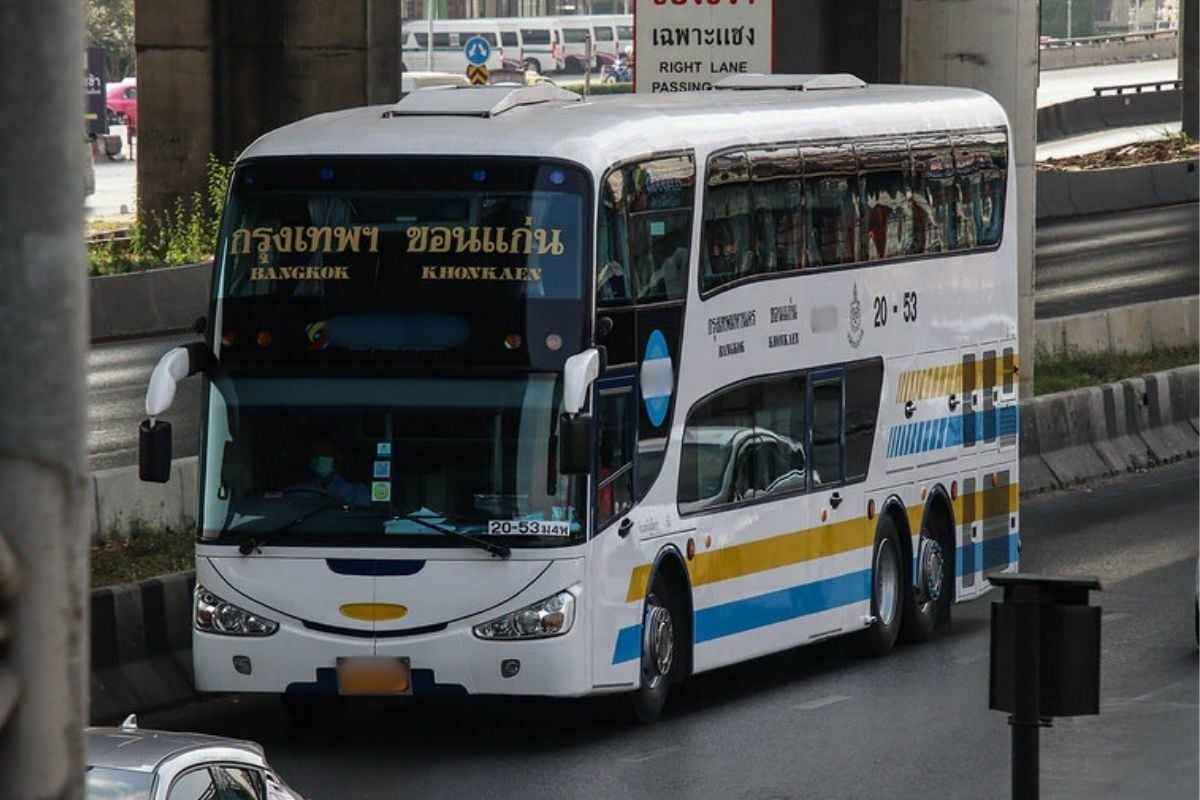Corruption scandal hits the brakes: Thailand’s bus industry whistleblows dirty dealings

A shocking revelation has swept through the coach bus industry of Thailand as several anonymous companies have blown the whistle on rampant corruption within the Land Transport Department‘s vehicle inspection process. A sneaky bribe of 3,000 to 4,000 baht is all it takes to fast-track an inspection, making life suspiciously easy for some.
This disgraceful practice was put under the spotlight following the recent bus blaze tragedy that claimed the lives of 23 children and teachers. The vehicle involved was discovered to have illegally installed gas tanks. Out of 10 NGV gas tanks on the coach, only six were there legitimately. This scandal has raised alarming questions about the integrity of public transport vehicle inspections across the country.
Furthermore, some of the gas tanks were installed inside the bus, increasing the risk to both the driver and passengers in the event of a gas leak. In addition, police investigations into other buses from the same company revealed that every vehicle had more gas tanks installed than the approved number.
Channel 3 conducted interviews with multiple coach bus companies regarding the vehicle inspection process. Some stated that the inspection was carried out thoroughly as part of vehicle registration renewal and tax payment, which is required every six months. The inspection period usually runs from January to June each year.
These companies confirmed that bus operators couldn’t pay bribes to authorities to expedite the registration renewal process. However, according to media reports, some bus companies admitted to paying officials 3,000 to 4,000 baht or more for a quicker inspection.
They explained that long queues formed between January and June, as officials were only able to inspect 10 vehicles per day and were unavailable on weekends and public holidays.
Pay extra
The bus companies also stated that the queues were even longer in areas like Bangkok, Pathum Thani, Ayutthaya, and Chon Buri, where many buses are registered.
While waiting in the inspection queue, buses would not have valid registration plates and were unable to operate, causing companies to lose significant income during this period.
As a result, some companies chose to pay extra to the relevant officials to speed up their inspection process. Paying 3,000 to 4,000 baht would hasten the process slightly while paying more would be considered as VIP treatment.
VIP companies could have their inspections conducted immediately after payment. Some bus companies felt they had no choice but to pay to continue providing services to passengers.
As of now, no relevant officials have come forward to verify the information shared in the media.
Latest Thailand News
Follow The Thaiger on Google News:


























